Community Initiatives
- Centers and Labs
- Center for Applied Research on the Environment and Sustainability
- Community Initiatives
Developing a Participatory Mangrove Ecosystem Restoration Model as a Nature-Based Solution to Climate Change (MERS)
The MERS project aims to adopt a nature-based solution to address climate change challenges and enhance the environmental, social, and economic resilience of the most vulnerable local communities through the restoration and rehabilitation of the mangrove ecosystem in Egypt. The model is optimized to fit the Egyptian context and allow for easy scalability targeting barriers or blockages to the scaling of nature-based solutions to climate change such as lack of finance, political will, and technical skills and capacities.

Read More About the Mangrove Restoration Project
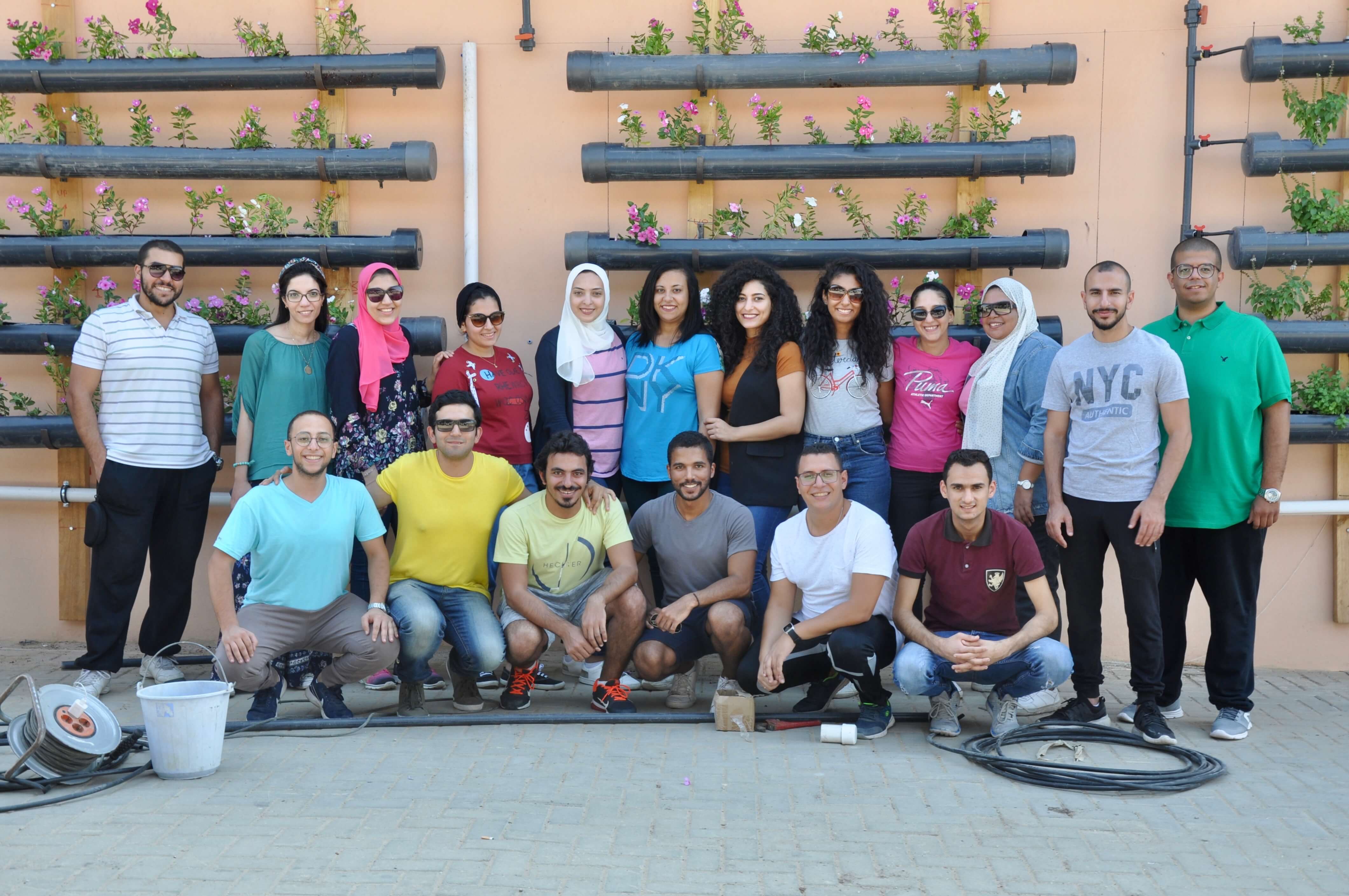
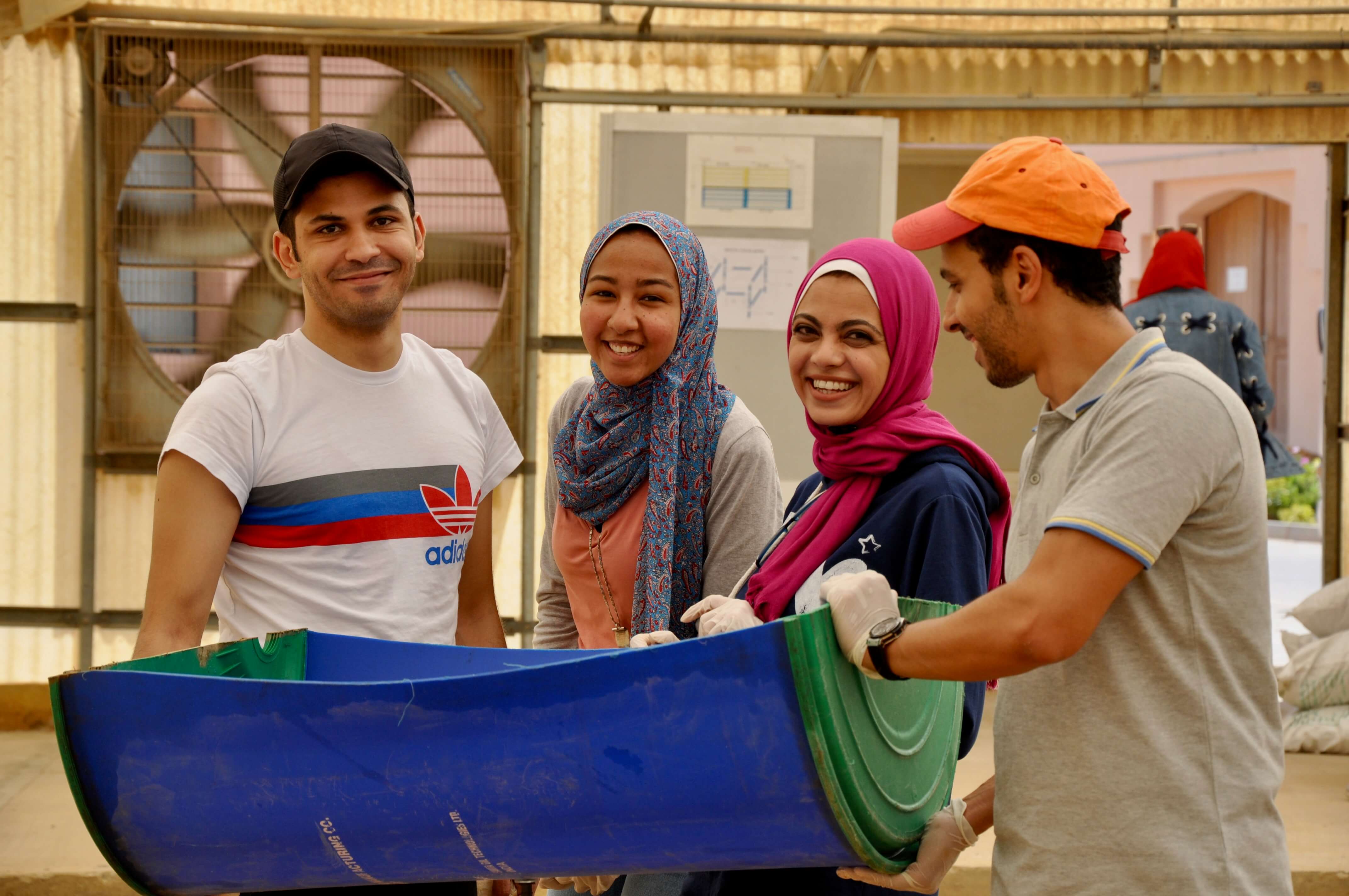
This project seeks to establish a Water Academy at CARES to serve as a learning hub and research center for water efficiency best management practices. This will include education sessions, activities, information and research that helps in making water conservation part of people’s day-to-day lives. The project’s main aim is to raise awareness for efficient and sustainable water usage to help eradicate water scarcity and achieve the Sustainable Development Goal of Clean Water and Sanitation by 2030. This will be achieved by:
Developing and implementing a capacity-building program on sustainable water consumption for volunteers
Developing capacity-building programs for sustainable water management in agriculture for different agriculture professionals
Building a model of best practices in water efficiency in agriculture
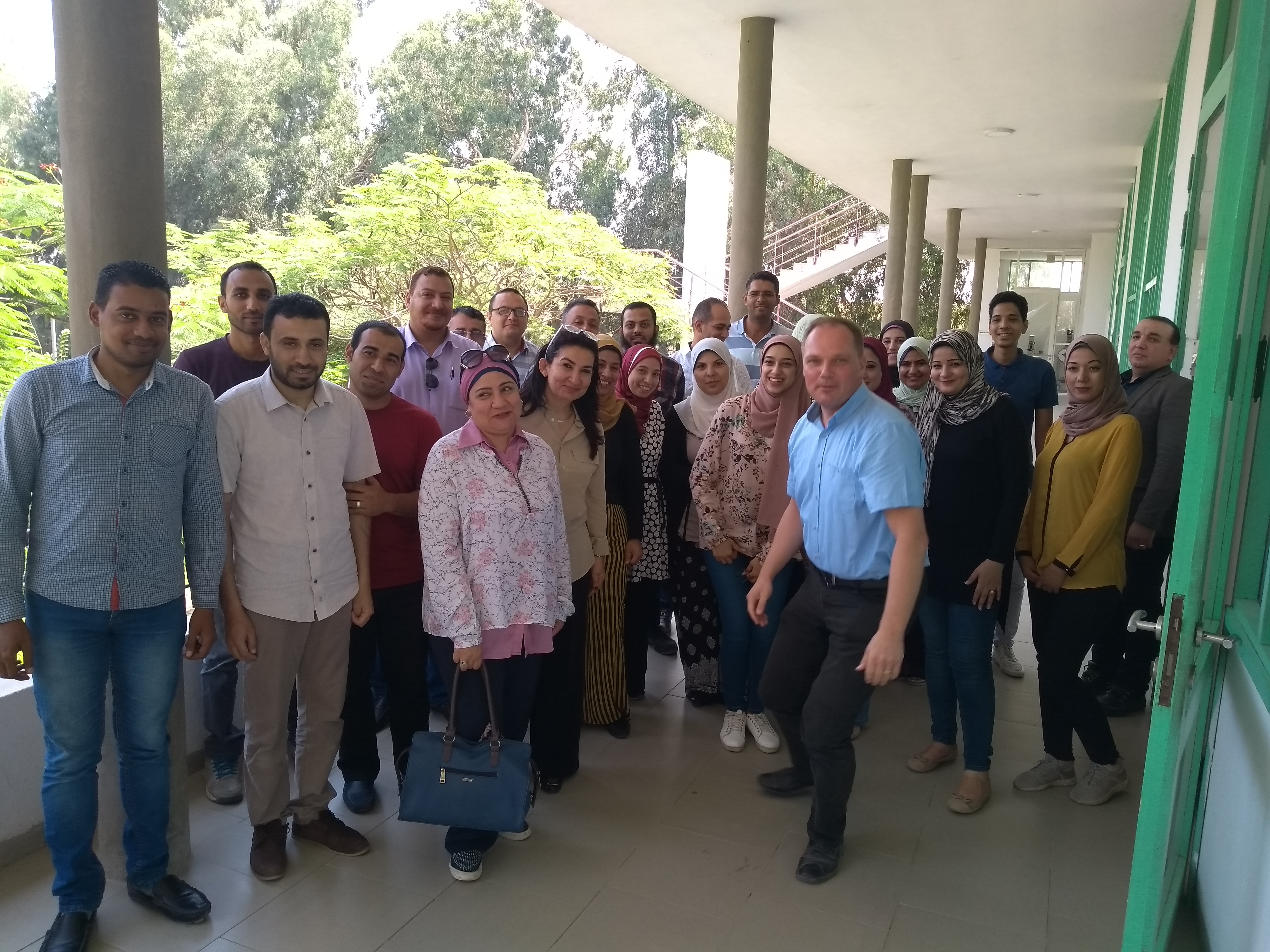
Migration flows from Egypt to Europe, and especially to Italy, increased over the 2000s and peaked in 2010: there were 30,816 new permit holders for all of Europe and 21,532 for Italy. As of October 2016, 12,766 migrants had disembarked in Italy from Egypt during 2016. This represents an increase of + 17.5 % over the same period in 2015 (10,856). A major incident took place in Egyptian waters on the coast of Rasheed on 21 September, with a death toll of at least 178 migrants (Françoise De Bel-Air, 2016). Egyptian emigrants are most often young men belonging to rural rather than urban areas. Migrants and refugees take the Central Mediterranean route both because they are driven from their country of origin (“push factors”) and because they are drawn to Europe (“pull factors”) (Desperate Migration, 2017).
CARES, along with a mixture of Egyptian universities, public and private Egyptian entities, and European universities, is working to develop a capacity-building program to support the Egyptian rural community, providing them with the necessary qualified graduates and university expertise to improve agricultural productivity, enable more sustainable food production, develop poor villages, and enhance farmers’ income and their living conditions to prevent mass migration to Egyptian cities and across national borders.
Project Objectives
To identify the push factors for migration from rural communities, needed skills in the Egyptian organizations and market to contribute directly or indirectly to rural development, especially in the agriculture and food production sectors.
Modification and reorientation of the existing post- and undergraduate curricula to supply the market with graduates who contribute to the implementation of the country’s sustainable development vision and ensure sustainable rural development. This will include introducing new concepts, such as triple-performing agriculture – at the economic, environmental and social levels.
Establishing four DeVilag Service Offices at the four Egyptian universities to provide technical support for the farmers and public and private sectors. These offices will provide info sessions and support needed for stakeholders dealing with agriculture in old and new lands in Egypt. For more information about DeVilag Service Offices, click here
To develop a capacity-building program to train and equip the professors in Egyptian universities with the knowledge and tools to address the different dimensions of sustainable agriculture and rural development in the modified curricula.
To develop Massive Open Online Courses (MOOCs) as Open Education Resources (OER) for spreading knowledge and raising the awareness of different stakeholders (students, politicians, academicians and wider society). The MOOCs will be high-quality materials that are copyright-free and publically available.
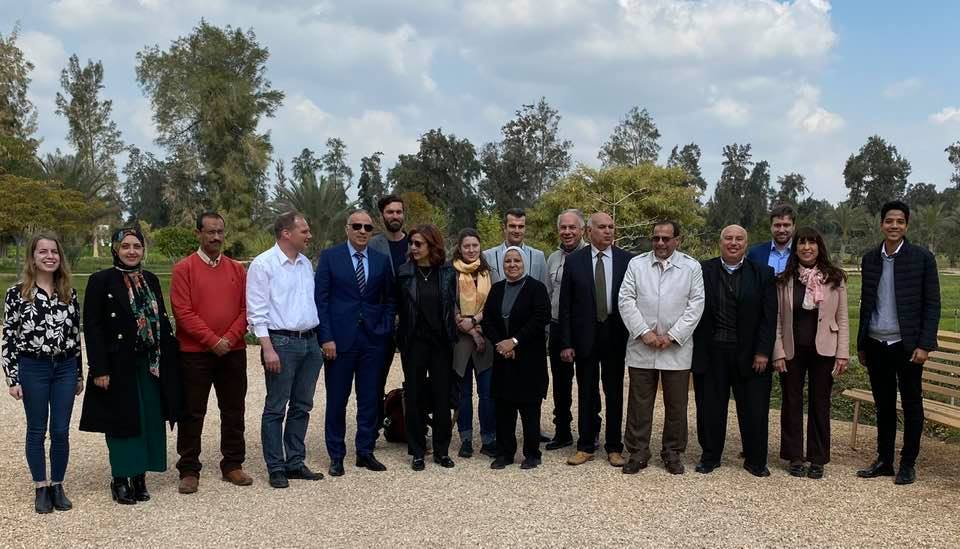
The aim of this project is to establish an Engineering MSc that trains engineers, suitably qualified to implement the “1.5 million feddan desert reclamation” target, as well as similar water, energy and food-related challenges in Egypt 2030.
Specific objectives
- To identify the key trends and needed skills in the Egyptian organizations, and market to contribute directly or indirectly to resource-efficient agriculture.
- To establish an Engineering MSc that prepares engineers to interact and coordinate with environmental scientists and farmers, and thus are suitably qualified to implement Egyptian and EU strategies, as well as similar Water, Energy and Food WEF nexus challenges. This also involved the modernization of existing courses.
- To develop a capacity-building program to train and equip the professors in Egyptian universities with the knowledge and tools to address the different dimensions of sustainable agriculture.
- To develop Massive Open Online Courses (MOOCs) as Open Education Resources (OER) for spreading the knowledge and raising the awareness of different stakeholders (students, politicians, academicians, and wider society). The MOOCs will be high-quality materials that are copyright-free and publicly available.
EduCamp
Education for sustainable development (ESD) enables every human being to acquire the knowledge, skills, attitudes, and values necessary to shape a sustainable future. ESD focuses on including key sustainable development principles in teaching and learning, covering topics such as climate change, disaster risk reduction, biodiversity, poverty reduction, and sustainable consumption. It also requires participatory teaching and learning methods that motivate and empower learners to change their behavior while taking action for sustainable development. ESD consequently promotes competencies such as critical thinking, imagining future scenarios and making decisions in a collaborative way. ESD sets out to achieve far-reaching changes in educational practices today. The Egyptian Ministry of Education does not require ESD to be implemented in Egyptian schools, yet ESD is crucial to the sustainable future outlined in the Egypt 2030 vision.

EduCamp one
With a budget of 1.4 million euros granted by the EU Tempus program, the EduCamp project commenced in October 2010 through the CSD - now part of CARES - and was carried out over a period of three years. It involved three consecutive phases: first, producing school kits on sustainable development, energy, water, agriculture and biodiversity to enhance the existing curriculum based on a needs analysis; second, training school teachers on the newly developed kits at one of seven centers of excellence in education for sustainable development and integrating student-focused approaches such as debates, games, and experiments, and finally, pilot implementation in grades five to nine in public schools across seven different governorates, which were twinned with partner universities. The project also involved analyzing public school textbooks in terms of content on sustainability.
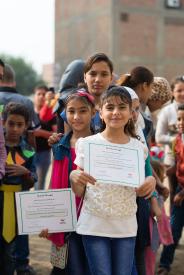
EduCamp Two
Building on the successful insights of the first phase, in 2014, the CSD launched the second phase of the project, EduCamp II, to introduce ESD into informal areas in line with the European Union strategy for sustainable development (2008), the United Nations Decade of Education for Sustainable Development (2005 -2014) and the Egyptian Education Reform Policy (2008 - 2010). EduCamp II sought to help informal areas in Egypt overcome many of their problems through educational and capacity-development activities and actions. The project was mainly summertime educational and recreational programs for children, youth and women and focuses on the El Warraq informal area in Giza and was funded by the European Union and the German government under the Participatory Development Programme of Urban Areas (PDP).

EduCamp Three
After the success of EduCamp I and II, CARES decided to implement the project on a larger scale by transforming the poor schools in Egypt into schools that meet the objectives of the Country’s Sustainable Development Strategy “Egypt 2030.” Since 2017, CARES has been seeking to develop a role model for the Egyptian schools that enable them to deliver education in line with the Egyptian Vision 2030. This transformation will provide solutions to real-world problems (infrastructure, overcrowded classes, low teaching quality, private lessons, violence, etc.) with a focus on children, youth, children with special needs and females and mothers in the area.